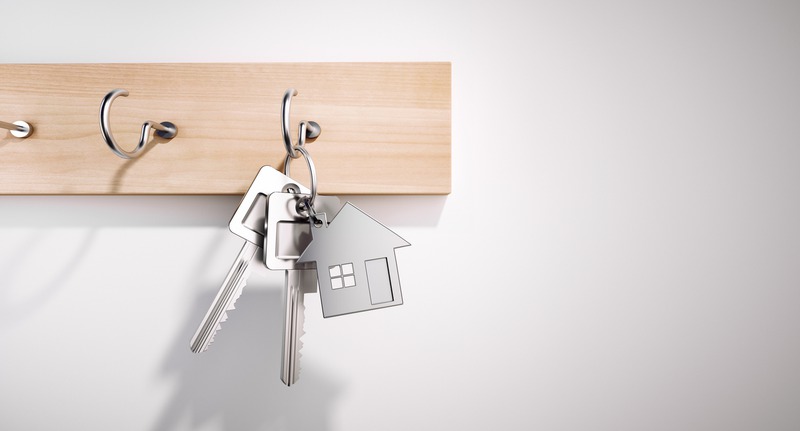When it’s time to put a property on the market, everyone has one important question: How much is my home worth? Understanding how home dealers value a property can often feel like unraveling a mystery. But it doesn’t have to be that way. We’re here to walk you through the process that professionals in the real estate industry use to determine a property’s market value. Whether you’re selling through traditional means or considering selling directly to a buyer, grasping the nuts and bolts of valuation can equip you with the knowledge to navigate your next sale confidently. So grab a coffee, and let’s get into how your home’s sale price is determined.
Factors Affecting Property Valuation
Think of the property valuation process as a complex puzzle where various pieces come together to create a clear picture of your home’s worth. We’ll begin by exploring the key factors that influence this picture.
Location, Location, Location
It’s no secret that location plays a starring role in the valuation of your property. A home in a highly desirable area – say a bustling city center or a serene suburb with top schools – commands a higher price than one in a less coveted locale. Let’s break down why location matters so much:
-
Accessibility to amenities like shopping, restaurants, and entertainment
-
Proximity to major employment hubs
-
Quality of local schools
-
Crime rates and overall safety
-
Neighborhood appeal, including cleanliness and social community
Property Size and Layout
After location, size does matter. Larger homes with more bedrooms and bathrooms tend to pull in higher price tags. But it’s not just about square footage; the layout influences a home’s appeal. Open-plan living spaces and a good flow between rooms can make a property more attractive to potential buyers.
Condition and Age
A well-maintained home that’s move-in ready often fetches a better price than a fixer-upper. Buyers typically want the most bang for their buck, including as few repair bills as possible. There’s the charm in older homes, too, especially if they’ve been well-preserved or stylishly renovated.
Market Trends
The housing market fluctuates due to economic factors like interest rates, consumer confidence, and the overall health of the economy. Part of a home dealer’s job is to keep their finger on the pulse of current market conditions to ensure the property is priced right.
The Appraisal Process
Home dealers generally rely on appraisals to gather an objective opinion of a property’s value. Here’s how the process works in a nutshell:
Comparative Market Analysis (CMA)
First up, appraisers carry out a Comparative Market Analysis. This involves comparing the property in question to similar homes in the same area that have sold recently. This comparison helps establish a fair price range based on actual market activity.
Physical Inspection
Next, appraisers inspect the property. They check out everything: the structure, the systems (like heating and cooling), the condition of the interiors and exteriors, and any home improvements. This physical check gives them a sense of the property’s current condition and what might need updating or repairing.
Special Features
If there’s anything unique about the property—maybe it has a swimming pool, a huge garden, or solar panels—these features will be considered in the valuation. Special features can either increase or decrease the home’s value depending on the buyer’s perception and the features’ actual utility.
Understanding the Buyer’s Perspective
To figure out your home’s value, consider what buyers value in a home. They’re well-informed and look for a house that feels right and fits their lifestyle. To sell your home, make it appealing: tidy it up, declutter, and maybe add a fresh coat of neutral paint. This helps potential buyers imagine living happily there. Selling to a direct buyer can be easier because they may accept the home as-is, but it’s still beneficial to present it nicely.
When Speed Is a Priority
There are times when selling your home quickly is more important than getting top dollar. It could be due to a job relocation, financial hardship, or a pending foreclosure. In these instances, working with home-buying companies can be a game-changer.
For sellers in a rush, you may search online for “We buy houses Arlington” which can help you with a speedy sale. Companies operating under this model purchase homes directly from sellers, often bypassing the traditional appraisal and listing process. This means no showings, no repairs, and a much swifter transaction.
Choosing the Right Partner
Selling your home doesn’t have to be done by yourself. Working with a real estate expert can help because they know a lot about giving advice, how to set prices, and how to make deals. Plus, getting help from companies like Starfish Group Properties can be really useful. They have special ways to advertise your home and lots of contacts that can make selling your house faster and easier.
Final Thoughts
Property valuation can seem confusing with all its numbers and terminology. However, it’s really about your home’s story and its unique features. Understanding how valuations work helps you deal with the stress of selling. Keep in mind, that valuations can change as markets shift and buyers have their own views of worth. With this knowledge, you can better handle the sale of your home or pick a different way to sell quickly. Since our homes are major investments, knowing about valuation puts you in control when you decide to sell.

